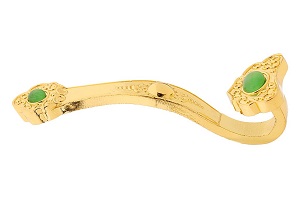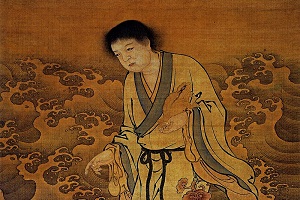The bonsai tree is one of those feng shui items that divides opinion in feng shui circles.
Some people outright insist that it should never be placed in a home and give it a negative reputation comparable to the cactus.
Some people love it to bits and have it as a default plant to have in any areas that requires a stronger wood energy presence.
And all these debates are brewing below the surface as a huge hobbyist community of bonsai plant lovers gather regularly to share tips of growing them and learn from one another.
There are even bonsai competitions held around the world to showcase the most graceful of these beautiful plants to enthusiasts.
There is no doubt that the bonsai has garnered a huge following of loyal followers over the years.
This is why even with some feng shui masters being very vocal about the negative connotations of the majestic bonsai, these opinions are seldom given mass market attention due to the possible backlach that they might receive.
The bad
The main reason why some feng shui master advocate against the placement of bonsai at home is mostly down to it being a stunted plant.
In the gardening world, stunting refers to plants that suffer from diseases that results in dwarfing, or a compromise in growth.
When a bonsai tree is said to be stunted it usually refers to it’s growth being limited or controlled one way or another.
Resulting in an abnormal or unnatural growth.
After all bonsai is a cultivation technique that is often categorized as an art. It basically can be applied to any types of trees with the goal of small tress in mind.
While not all bonsai are stunted as they can be left to grow freely and naturally, hobbyists who keep them tend to prune and snip them to shape them almost as a default.
This close association of stunting and bonsai is why the symbolic world of feng shui don’t recommend it as a household plant.
As one might expect, this is not a good practice of symbolism to have at home.
The good
There is no denying the beauty of the bonsai.
Even people who are not into horticulture can see the beauty of it and some even find it able to drive inspiration.
The seeds grow into the exact appearance of a powerful tree. Only in a cute miniature form.
It’s like cultivating your own tree right in the house. Except that this is more manageable and versatile.
What’s wrong with having a bonsai resident at home and have it blend into the energy of the surroundings and interior design?
The bonsai plant is unquestionably of wood element.
This makes it an excellent enhancer for the east, southeast and south.
Moreover, with it’s strong and sturdy build that can reach several inches in height, it can also be used as a blocker of sha chi entering a window.
Wild trees can grow up to 5 meters in height.
Because of the small size, any type of plants grown as bonsai can have a resemblance to other feng shui plants with very positive symbolism like:
- Peach tree
- Bamboo
- Gem tree
- Jade plant
- Pine tree
- etc
And so, owners of it who practice feng shui attest that the bonsai tree plant can be a representation of these other plants as well.
While various feng shui masters write-off such opinion, remember that there are various things that feng shui masters use as substitutes of other feng shui subjects, or as direct symbolic representations of feng shui objects.
For example, a domestic house cat is often seen as symbolic of the white tiger. A bird is often said to be representative of the celestial phoenix. Human and vehicle traffic is often translated to represent characteristics of water in feng shui, or virtual water. Even green hedges in the garden can be said to represent the presence of the green dragon.
So why exactly does a gorgeous bonsai plant have a harmful aura when it can easily be the most majestic of all house plants you have at home?
Whether it is a suitable addition to the house depends on the homeowner or user.
If you have a bad feeling about them, or cannot convince yourself that it will not bring harm to the household and family members, then don’t cultivate it at all.
If you can’t get over that mental hurdle, then you are just not in the right frame of mind in regards to feng shui.
When bad luck arrives, there’s every chance that you will attribute it solely on the bonsai. And the arrival of good luck will be attributed to other feng shui enhancers instead of the plant.
However, if you absolutely love the bonsai and feels that it will help supercharge the east sector of the house to bring good fortune, then by all means go ahead.
In fact, many bonsai lovers often attribute periods of good luck to their unique bonsai plants.
Unlike dying, wilting or decaying plants that understandably emit negative and tin energy, a healthy bonsai will bring much needed wood energy to any areas in the house that requires it.
They made great display items too.
Just remember to care for it as sometimes caring for plants, especially those that flowers, can require more effort and commitment than caring for pets.
Alternatives to the bonsai
However, if you are pondering buying a bonsai for feng shui purposes instead of being a fan of it, consider that there are many other plants that feng shui masters overwhelmingly agree that brings good luck.
That is in contrast with the bonsai that divides opinion.
A list of them is listed previously.
In addition to that, if you want to bring plants into the house but just don’t want to take on the task of caring for them, then contemplate using paintings and pictures.
While paintings won’t be as potent as the real thing, they are also powerful energy enhancers and serve as able substitutes in place of real plants.















